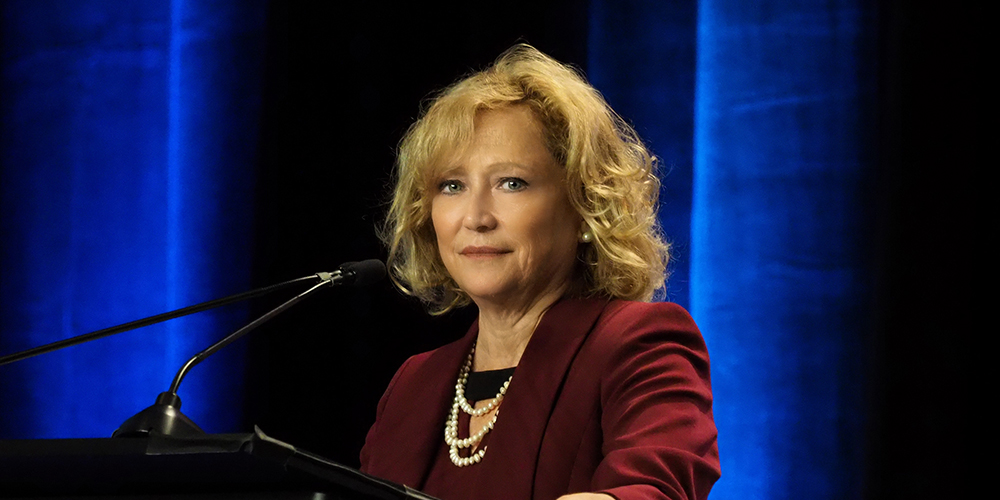
Lisa Simpson: A career in public health and understanding people
A small community health center in Waimānalo, the statewide Healthy Start program for Hawaiʻi's keiki, and the national Children's Health Insurance Program (CHIP) all have something in common: Lisa Simpson, M.B., B.Ch., MPH, got to help them succeed.
As a pediatrician keenly interested in improving the health of children, Lisa decided to enter the UH Public Health program while she was completing her residency at Kapiolani Medical Center for Women and Children.
"It was very clear to me at the hospital that so much more contributed to children's health than just the medical care I could provide," Lisa says. "I wanted to understand the social determinants of health and find better ways to prevent disease, rather than just treat it."
She completed her Master of Public Health in epidemiology in 1986, and honed her passion for doing research and creating new health policy based on that research. Lisa sees her life's work as generating evidence and then moving that evidence into policy and practice.
"A key thing I've learned is that as we confront the challenges individuals and communities face in achieving their optimal health, collaborative problem-solving is critical," she says.
When Lisa became the branch chief of maternal-child health at the Hawaiʻi State Department of Health (DOH), she worked with community members in Waimānalo to transform their clinic so it was truly their own. Lisa worked with many others as the center applied for and secured federal designation and funding as a Federally Qualified Health Center. "It was vital to make it a community-driven health center," she says.
During her time at the DOH, she also helped to increase the reach of Hawaiʻi's nascent Healthy Start Program. Under her leadership, the state expanded the program from Oʻahu to the neighbor islands. Healthy Start used evidence-based practices to keep keiki and families healthy by promoting early childhood education, encouraging childhood developmental screenings, and fostering positive parenting skills.
"I've spent my life at the intersection of research and its application to policy and practice," Lisa says. "Too often we ask the wrong questions, or we're not informed by the needs of the communities we hope to help. Ongoing community engagement keeps us on the right path."
Before working as a professor in child health policy at the University of South Florida and the University of Cincinnati, Lisa served for seven years as the deputy director of the federal Agency for Healthcare Research and Quality. During her time there, Congress created the CHIP program, which today provides coverage for 9.4 million U.S. children. The program aimed to provide insurance to children in low-income, working families to increase the number of children with health insurance, improve access to health care for kids, and reduce health disparities.
Because the program was authorized for only 10 years, Lisa knew that Congressional leaders would want to know if it was working. Working with partners inside and out of government, she established a $9 million initiative to fund research evaluating the impact of the program, the Child Health Insurance Research Initiative (CHIRI).
"That initiative was critical," Lisa says. "When the time came, we had the evidence to show that CHIP was effective, and together with a multi-stakeholder advocacy push, this resulted in Congress's re-authorizing the program."
These days, Lisa is the president and chief executive officer of AcademyHealth, a leading national organization for health services researchers, policymakers and health care practitioners and stakeholders. With its members and partners, AcademyHealth works to improve health and the performance of the health system by supporting the production and use of evidence to inform policy. "The organization's mission resonated with me, with how I think about my career," Lisa says.
To her, public health is about understanding that the lives of individuals and families are very much influenced by the conditions around them. Looking back, her time at UH Public Health was "one of the most mind-expanding and rewarding experiences of my career," she says. The topics covered in her classes, the professors, and especially the conversations with her classmates who came from all over the world contributed to a rich learning experience.
"A career spent learning in public health is a career spent understanding people, and where they live, learn, work, play and pray," she says. "It is about developing systems-level approaches to creating the conditions for health, and it is also about so much more."
Photo Credit: Hoag Levins
